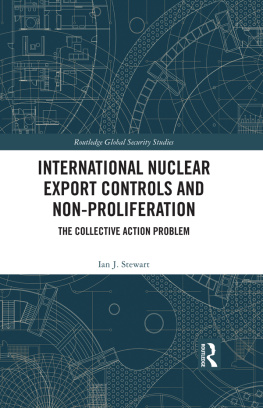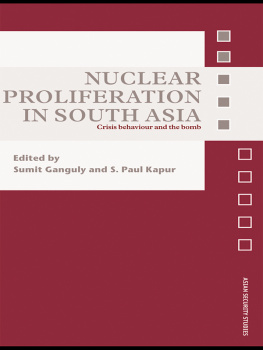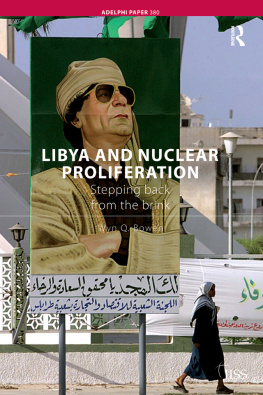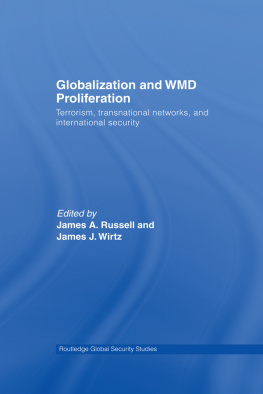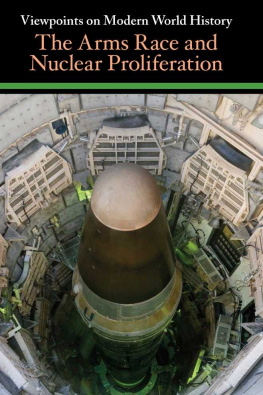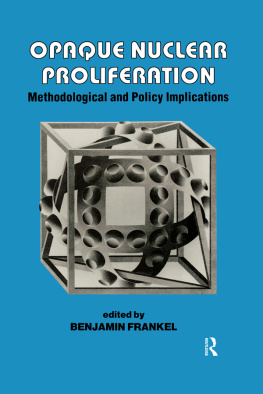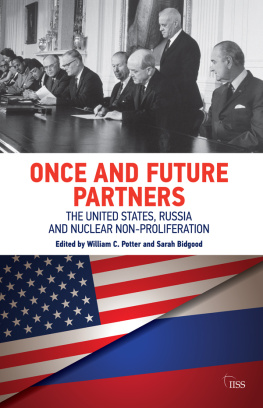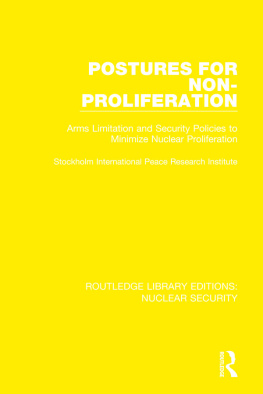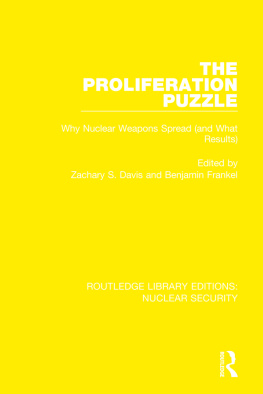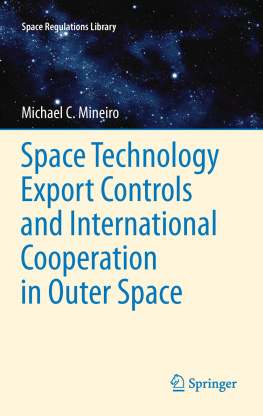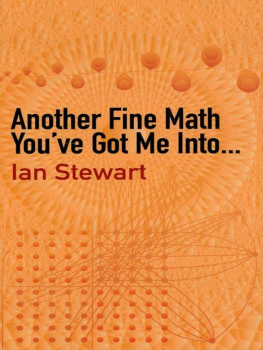International Nuclear Export Controls and Non-Proliferation
This book examines the evolution of international nuclear non-proliferation trade controls over time.
The book argues that the international nuclear export controls have developed in a sub-optimal way as a result of a non-proliferation collective action problem. This has resulted in competition among suppliers, owing to the absence of an overarching effective system of control. While efforts have been undertaken to address this collective action problem and strengthen controls over time, these measures have been inherently limited, it is argued here, because of the same structural factors and vested interests that led to the creation of the problem in the first place. This study examines international controls from the beginning of the nuclear age and early efforts to control the atom, up to more recent times and the challenge posed by Iranian and North Korean nuclear ambitions. Drawing on a rich body of original archival research and interviews, the book demonstrates that the collective action problem has restrained cooperation in preventing nuclear proliferation and that gaps persist in the international nuclear trade control regime.
This book will be of much interest to students of nuclear proliferation and arms control, security studies, and International Relations.
Ian J. Stewart is Executive Director of the James Martin Center for Nonproliferation Studies in Washington DC, USA.
Routledge Global Security Studies
Series Editors: Aaron Karp and Regina Karp
Global Security Studies emphasizes broad forces reshaping global security and the dilemmas facing decision-makers the world over. The series stresses issues relevant in many countries and regions, accessible to broad professional and academic audiences as well as to students, and enduring through explicit theoretical foundations.
Renegotiating the Nuclear Order
A Sociological Approach
Tarja Cronberg
The Treaty Prohibiting Nuclear Weapons
How it was Achieved and Why it Matters
Alexander Kmentt
The Nuclear Terrorism Threat
An Organisational Approach
Brecht Volders
The International Atomic Energy Agencys Six Decades
Historical Reflections, Current Challenges and Future Prospects
Edited by Joseph F. Pilat
Russia and the World in the Putin Era
From Theory to Reality in Russian Global Strategy
Edited by Roger E. Kanet and Dina Moulioukov
International Nuclear Export Controls and Non-Proliferation
The Collective Action Problem
Ian J. Stewart
For more information about this series, please visit: www.routledge.com/Routledge-Global-Security-Studies/book-series/RGSS
International Nuclear Export Controls and Non-Proliferation
The Collective Action Problem
Ian J. Stewart
First published 2022
by Routledge
2 Park Square, Milton Park, Abingdon, Oxon OX14 4RN
and by Routledge
605 Third Avenue, New York, NY 10158
Routledge is an imprint of the Taylor & Francis Group, an informa business
2022 Ian J. Stewart
The right of Ian J. Stewart to be identified as author of this work has been asserted by him in accordance with sections 77 and 78 of the Copyright, Designs and Patents Act 1988.
All rights reserved. No part of this book may be reprinted or reproduced or utilised in any form or by any electronic, mechanical, or other means, now known or hereafter invented, including photocopying and recording, or in any information storage or retrieval system, without permission in writing from the publishers.
Trademark notice: Product or corporate names may be trademarks or registered trademarks, and are used only for identification and explanation without intent to infringe.
British Library Cataloguing-in-Publication Data
A catalogue record for this book is available from the British Library
Library of Congress Cataloging-in-Publication Data
A catalog record has been requested for this book
ISBN: 978-1-032-04687-7 (hbk)
ISBN: 978-1-032-04688-4 (pbk)
ISBN: 978-1-003-19426-2 (ebk)
DOI: 10.4324/9781003194262
Typeset in Times New Roman
by Newgen Publishing UK
Contents
This book is a culmination of more than seven years of part-time effort. I would thus like to thank a number of individuals and organisations for their support over an extended period of time. Principally, I would like to express my sincere gratitude to Professor Wyn Bowen for his supervision during my PhD studies which formed the basis of this book. I would also like to recognise and thank colleagues at Kings College London, former colleagues in the British government, and colleagues in the non-proliferation practitioner community more generally for their encouragement and support. I would like to thank the individuals who agreed to be interviewed for this research, including, in particular, Dr Jonathan Brewer, whose support has been invaluable.
Finally, and perhaps most importantly, I would like to recognise and thank Anna Sliwon-Stewart for her patience and support despite the countless lost evenings and weekends caused by my pursuit of this research.
ABACC | Agency for Accounting and Control of Nuclear Materials |
ACDA | Arms Control and Disarmament Association |
AEC | Atomic Energy Commission (US unless otherwise specified) |
AP | Additional Protocol |
BoG | Board of Governors |
CAP | Collective Action Problem |
CDT | Combined Development Trust |
CENTO | The Central Treaty Organisation |
CIRUS | Canada India Research Reactor |
CPC | Combined Policy Committee |
CSA | Comprehensive Safeguards Agreement |
DIQ | Design Information Questionnaire |
DPRK | Democratic Peoples Republic of Korea (North Korea) |
ENDC | Ten National Disarmament Commission (later expended to the Eighteen Nation Committee on Disarmament) |
EURATOM | European Atomic Energy Community |
FMCT | Fissile Material Cut-Off Treaty |
GC | General Conference |
HEU | Highly Enriched Uranium |
IAEA | International Atomic Energy Agency |
INFCIRC | Information Circular (a formal document of the IAEA) |
JCPOA | Joint Comprehensive Plan of Action |
JPOA | Joint Plan of Action |
KANUPP | |

